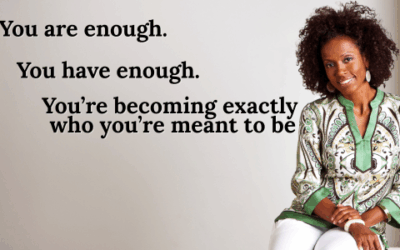By Sheila Boynton, LSW, MDiv, CTCP, CAMS-1
Living in your authentic self is a concept that has been around for a long time. It has been found to be a key component of happiness and success. So, what does it mean to live in your authentic self? It means to live as an individual, not as someone else or as society demands. When you are living in your authentic self, you are being true to who you are and what you believe. You do not have to pretend or put on a show for others. We all have a story. And we all have a voice. But what happens when we do not use our voice? We start living someone else’s story and someone else’s life.
 As children we were taught to ‘fit in’ by our parents, teachers, peers, religions and society. We therefore developed beliefs, motions, behaviors and values based on how we were supposed to act to fit in, not in ways that allow us to feel authentically ourselves. We were socialized to adapt to the environment in which we lived – our adaptive self. That is not to say this adapted self was without purpose or value. Our adaptive self allowed us to fit into society as children and even as adults. But, fitting in to the norms and demands of others or society does not allow you to live the life that brings you happiness and contentment as your authentic self.
As children we were taught to ‘fit in’ by our parents, teachers, peers, religions and society. We therefore developed beliefs, motions, behaviors and values based on how we were supposed to act to fit in, not in ways that allow us to feel authentically ourselves. We were socialized to adapt to the environment in which we lived – our adaptive self. That is not to say this adapted self was without purpose or value. Our adaptive self allowed us to fit into society as children and even as adults. But, fitting in to the norms and demands of others or society does not allow you to live the life that brings you happiness and contentment as your authentic self.
The idea of living in your authentic self is often associated with the idea of being “true to oneself.” When we are true to ourselves, we can be confident and happy because we know that our decisions come from our own beliefs and desires rather than from the beliefs and desires of others. It’s about accepting your flaws and embracing your strengths. It’s about understanding that no one is perfect, but that it’s possible for everyone to live with happiness and contentment.
Ways to develop and live in your authentic self:
- Self-awareness. Be aware of yourself when you are engaging with others. Are you adapting to what is going on around you or who others think you should be or are you being who you want to be? Doing what you want to do? Believing what you believe is right?
- Examine your family system. Our childhoods and family systems influence our embedded values and beliefs. Knowing where we come from can help us distinguish between our authentic self and our adaptive self (the self that fights to fit to get along). Look back at your family to identify those values and beliefs that you have adapted in your life. Are your family beliefs your beliefs or is your adaptive self-running your life? How has your family influenced how you show up in spaces today?
- Discover your own values. Identify your core values and beliefs to help you to live your authentic self. No one can identify your values for you. If others are identifying your values, you are living in your adaptive self, not your authentic self.
- Practice self-love and acceptance of others. Loving yourself as you are, flaws and all, allows you to show up authentically in relationships. When you love yourself, you also teach others how you want to be treated. Self-love also makes room to accept others as they are (yes, flaws and all). Write positive affirmations daily about yourself. Look in the mirror and speak words of love and kindness (e.g., I am beautiful, I love me just the way I am, I am courageous, I am good enough, etc.)
- Let go of old habits, behaviors and beliefs. To live your authentic self, get rid of old beliefs, habits and behaviors that no longer serve you. You are not obligated to continue a behavior or belief that is adapted from someone else or society. Give yourself permission to make your values and beliefs a priority.
Remember, many of us have been living in the adaptive self for a long time. Be patient with yourself as you recreate yourself to live in your authentic self. Continue to monitor your beliefs and behaviors. Practice self-love and self-compassion. Set healthy boundaries. It takes courage and perseverance, but overtime you will live in your authentic self with contentment and happiness.


